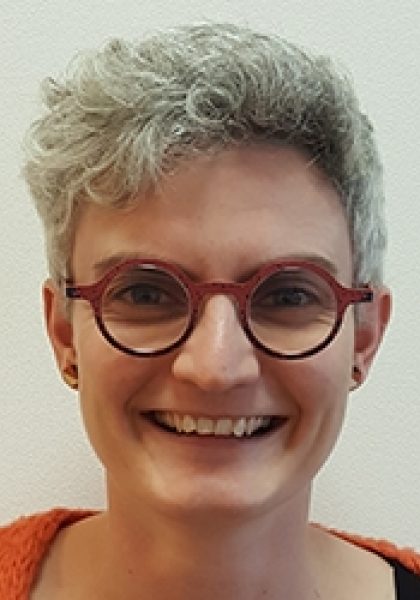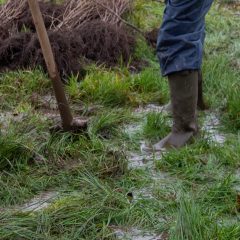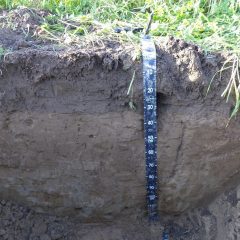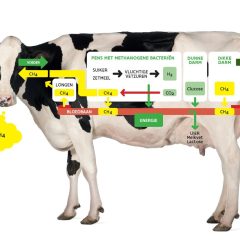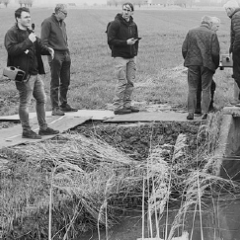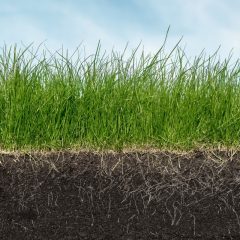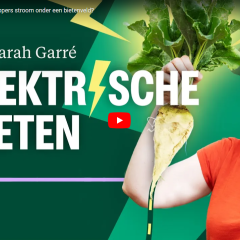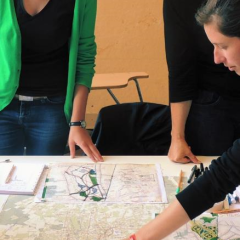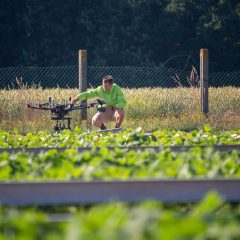Research project Blue-green strategies for climate change adaptation

General introduction
The TURQUOISE research project has done work on keeping water more available in/for agricultural soils. A decision support framework has been developed to facilitate planning certain blue-green adaptation strategies and increase their implementation rate. That framework relies, among other things, on experimental work within TURQUOISE, and on simulations in the valley of the Kleine Nete river and weirs on sloping terrain in Merelbeke.
Flanders must prepare for both more droughts and more risks of flooding. The project aimed for a proactive approach, based on ecosystem functioning, to increase water availability. Making such blue-green solutions feasible and scalable requires knowledge about the effectiveness (or side effects) of measures on a larger scale and what is needed to reduce drought risk to an acceptable level.
Research approach
Specifically, experiments were conducted to quantify the impact of decompaction measures, weirs and de-draining landscape depressions (UA, KULeuven, ILVO). The researchers used different types of models to scale up the locally measured effects to the landscape in the valley of the Kleine Nete (KULeuven). These simulations were also used to make economic estimates of the costs and benefits of proactive investments for water retention (UA). Finally, together with a learning network of area workers within Water+Land+Schap, the opportunities and barriers to actually implementing measures were examined. All this was summarized in a decision support framework consisting of a set tools developed within the project.
Relevance/Valorization
Blue-green strategies are an important part of the Flemish drought policy and the Blue Deal. The TURQUOISE team played a key role in the necessary processes of co-creation, participation and cooperation between governments and sectors. Knowledge sharing, exchange of experiences around measures and mechanisms emerged. Governments, civil society and companies now form a network. The actors involved are the governments VMM (water), VLM (land), department OMGEVING (environment, climate & spatial planning), the water companies PIDPA, De Watergroep, Fluvius and FARYS; the nature sector (Natuurpunt, ANB), the sewage and wastewater treatment sector (VLARIO, Aquafin, Fluvius and most of the water companies), provinces and intermunicipal development companies.
